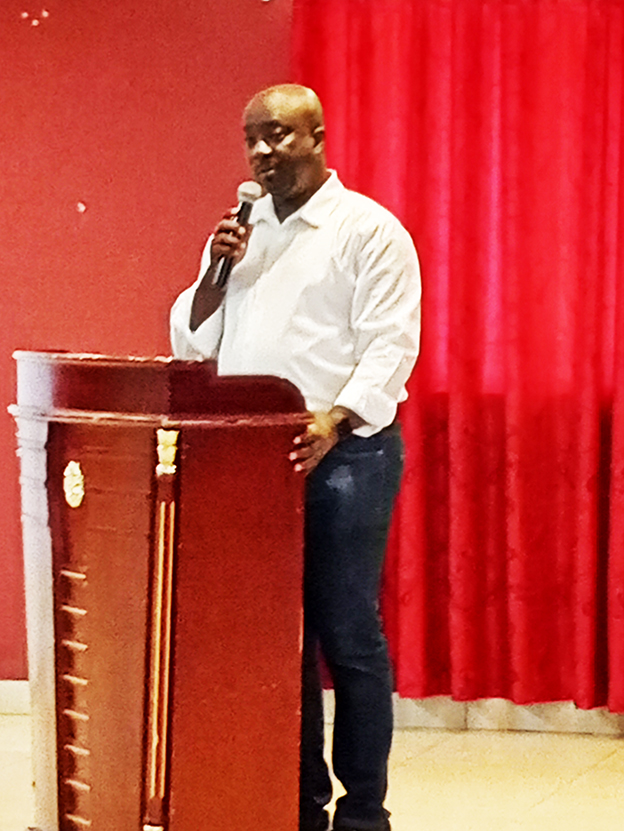
The Deputy Director for Arts and Culture at the Ministry of Tourism, Arts and Culture, Mr Divine Owusu-Ansah, has said it is important for efforts to be made to deal with false perceptions about culture.
“There is the need to reinvest in new strategies and policies that would propagate culture in its very positive image”, he emphasised.
He said culture has an impact on identity and national development for which reason it must be preserved at all times.
Mr Owusu-Ansah was speaking at a stakeholder consultation meeting in Sunyani for the review of the 2004 Ghana’s Culture Policy by the Ministry of Tourism, Arts and Culture.
Mr Owusu-Ansah said the 2004 Culture Policy, has set the foundation for the preservation of cultural heritage.
He called on stakeholders to devise measures to enhance the existing cultural policies to align with the dynamic needs of Ghanaian society because society has changed with time.
The workshop brought together stakeholders including representatives of the various ministries and agencies, media, academia as well as distinguished individuals from the creative and arts industry in the Bono region, to provide inputs to support the works of the Culture Policy Review Committee.

The 20-member committee, chaired by Nana Kwasi Gyan Apenteng, to review Ghana’s Cultural Policy of 2004, was inaugurated in Accra on August 22, 2023 to help redefine and reinforce Ghana’s cultural landscape.
In his opening remarks, Nana Apenteng said the process marked a journey of reflection and renewal that would hold the potential to shape the cultural landscape of the country.
He presented the reviewed policy and urged participants to actively engage in the discussions, share their experiences, voice out their concerns and propose innovative ideas.
The policy, when completed, he said, would serve as a blueprint to promote Ghanaian culture and use same for national development.
The Chief Director of the Bono Regional Coordinating Council, Mr Andrews Okumah Nawil, said the national culture policy would give clear action lines to encourage the chiefs and people of all ethnic groups to act together. They should also utilize the culture heritage of the country to address the fundamental needs and challenges to attain a better quality of life of the present and the future generations.
Mr Nawil observed that Ghana’s culture heritage was in the past a source of pride and well spring of creativity and that a review is critical to bolster the culture sector, to ensure that it thrives as a beacon of inspiration, innovation and economic vitality.
According to the Chief Director, in a world marked by diversity and driven by Information, Communication and Technology, (ICT), preserving and celebrating the richness of our culture requires that we leverage ICT as a bridge that connects the various aspects of the society, fostering understanding and harmony.
He expressed worry about the Ghanaian culture, which portrayed love, unity, social conduct, but the respect for authority and the aged is constantly fading away from our society as the populace especially the youth blindly embrace foreign cultural beliefs and practices.
“Our cultural practices and values, which identify us as a people are now under threat of extinct and no sooner than later, our future generations would be at cross roads of a culture dilemma”, he said.
He was, however, optimistic that the review of Ghana’s culture policy would take cognizance of the dynamic of globalization and redefine and brand Ghanaian culture in its purest form to help promote national development. He urged the participants to suggest innovative ideas to enhance our culture policy.
Madam Josephine Ohene-Osei, Director, Arts and Culture at the Ministry of Tourism, Arts and Culture on her part recalled that in 2017, a committee was constituted by the ministry to review the existing 2004 culture policy. However, the work of the committee was halted along the line until it was revived in 2022 with some support from the Ministry of Tourism, Arts and Culture.
“The ministry also applied for financial support from the International Fund for Cultural Development,( IFDC) under UNESCO and solicited additional funding from the EU to achieve the desired results”, she said.
Madam Ohene-Osei emphasised that the support is the first time Ghana has benefited from the IFCD under UNESCO.
Madam Ohene-Osei observed that the journey on achieving a national policy on culture has been challenging, but she was hopeful that “with the ongoing stakeholder consultations and the eventual validation workshop, there would be national culture policy that Ghanaians would be proud of”. Participants took turns to share their experiences and gave suggestions for a better policy on culture.








